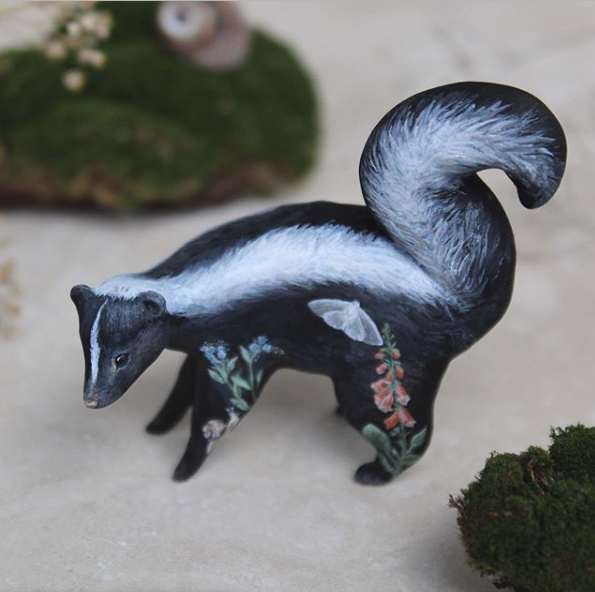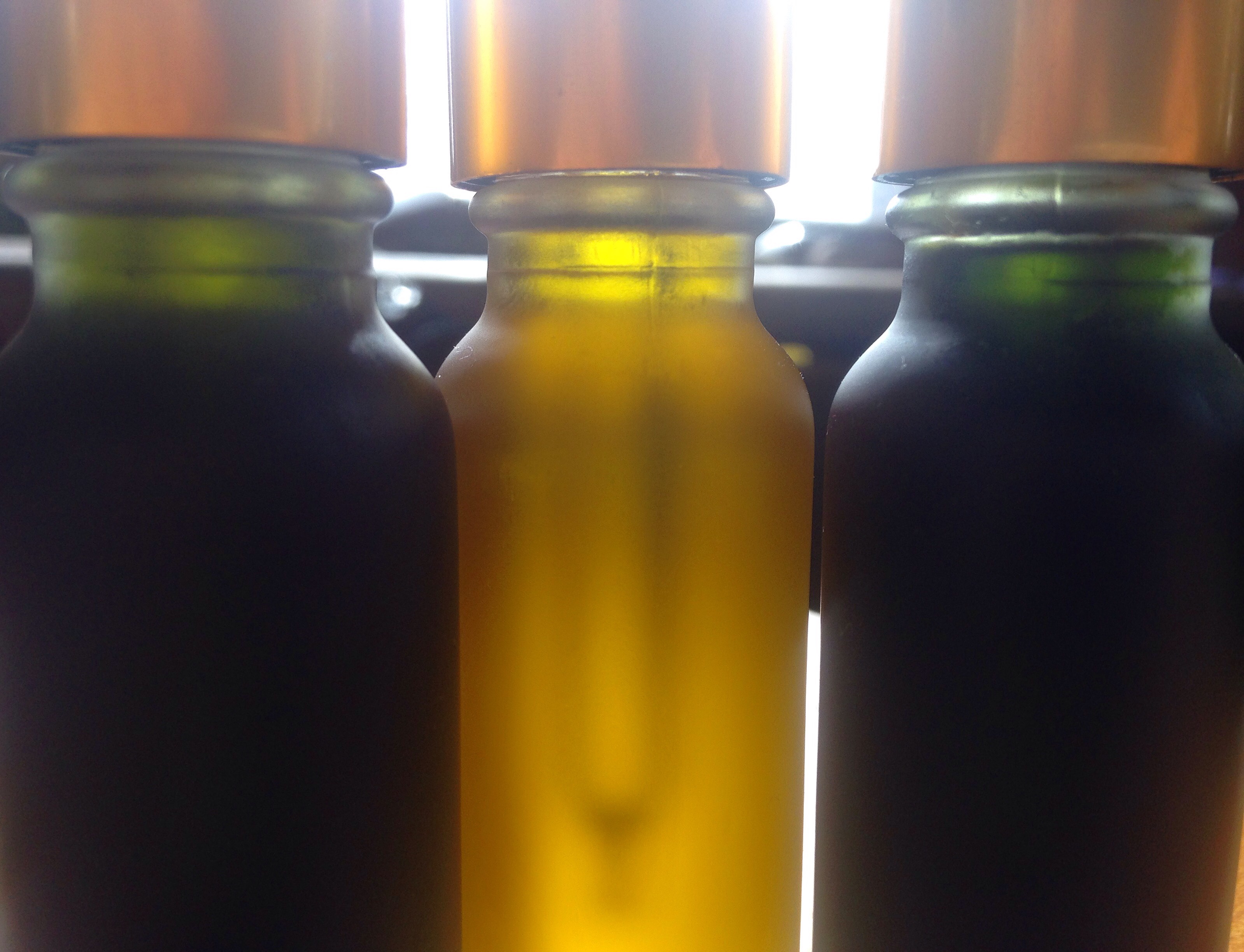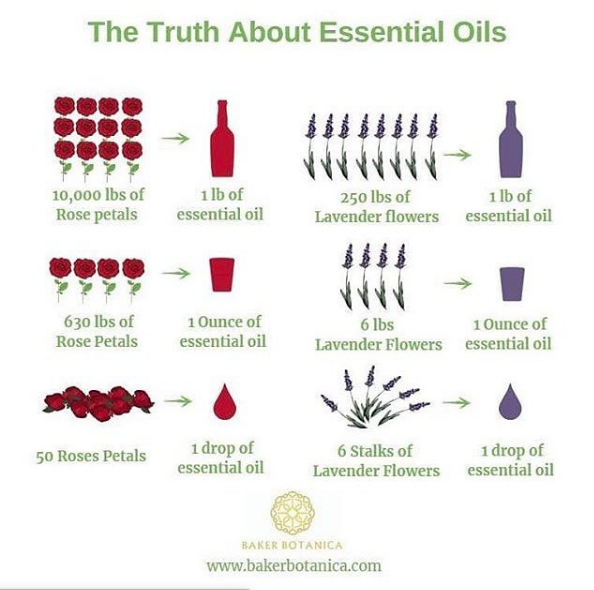Soul Oils
Pt. 1: Soul Oils & Skunk Medicine

❈ Skunk image & sculpture from Meadow & Fawn ❈
This summer past I began to embrace my connection to the Skunk. After all, it's nearly in my last name- Funk. Their medicine deals largely with the strength of boundaries. Skunks aren't the physically strongest of animals, yet their demand for respect grants them power.
Ever since some transformative experiences in India four years ago, whilst earning my Reiki Masters and working with the Tibetan refugee community, I've honored the power of saying no. My friend Lisa gifted me a phrase then that I constantly remind myself and others: "Saying no to someone else is saying yes to yourself." And when we come forth with our "no" and stand in our integrity, we can also trust that it's best for the other person or situation we're saying 'no' to. What's best for us will ultimately be best for the other; it is a kindness to no one to fake comfort with a situation that does not align with our authentic selves.
When skunks feel uncomfortable, they'll let you know it. Perhaps some creatures do not befriend them for it, yet they sure do respect them. So skunk medicine elicits the power of standing in our authenticity- no matter how strange or off putting. There will always be those who honor that strength, and some who are attracted to it: like the Great Horned Owl who chases after the smell of the skunk although it repels others.
Surely, then, Skunk medicine also deals with the power of Scent. I've been infatuated with botanical aromas for some years; indeed I feel my French ancestry connects me to the old art of perfumery. But with the unsustainability of Essential Oils (as it takes pounds if not tons of plant material to produce an ounce of EO), I wanted to create the most potent whole-infused plant oils I could from local, medicinal herbs.
After a winter in the darkness, I've finally done it: the color of three oils pictured here illustrate their potency. The green is so rich it appears black, and rubbing the oils on your skin smells as if you're rubbing that whole, fresh plant between your fingers.

Pt. 2: Why Jojoba Oil?
Jojoba oil was the first "oil" my skin ever fell in love with. I've struggled with acne since the fifth grade, and my younger self always saw oil as the enemy to my imbalanced skin.
As I grew older, I started to realize that the more I put *nothing* on my face, the more my acne improved. So I stepped away from the marketed face-washes and harsh toners, and started to do some research. I learned that the products I was using were actually stripping my skin of its natural sebum- throwing it off balance.
Then stepped in Jojoba oil, which actually isn't an oil, but a wax that most closely resembles our skin's sebum. I learned that I could actually *wash* my skin with a jojoba face-massage followed by a wipe-down with a simple, soaked wash cloth. This began to nourish my skin, calming the inflammation of acne.
Since then, I've developed a deep affinity for jojoba. I love how quickly my skin seems to drink it up. Clients I work with who struggle with eczema or psoriasis also tend to prefer jojoba over olive or sunflower oils, because of the skin's tendency to fully absorb it. Another perk to jojoba is that since it's technically a wax, it has a much longer shelf life than other oils on the market.
I decided to make Soul Oils with US-grown, organic Jojoba to introduce botanical-infused oils that can be slathered anywhere-- even on sensitive, acne-prone facial skin, or on skin so dry, tough, or inflamed it barely absorbs heavier oils. As someone who deals with TMJ and acne, I use these oils (diluted) in daily facial massage.
Yes, I often choose to dilute these oils, because they are so *potent*. I use a unique extraction method to allow for this-- & you can tell by the color of these oils versus other herb-infused oils on the market. A dropperful of mugwort or yarrow soul into another half ounce of jojoba will start to turn it emerald.
So you can choose to dilute these oils-- add them to your own botanical creations, or enjoy lathering yourself in the whole soul of these plants, whose aromas will transport you to summer days spent with them. Why do I say 'soul' of the plants?
Pt. 3: Alchemy & Essential Oils
In Alchemy, a plant (& a person) is comprised of three fundamental components: body, soul, and spirit. In this case, the soul differentiates from spirit in that the soul is individualized to each plant, whereas the spirit is shared by all.
On a level of constituents, the plant's body, soul, and spirit translate into its salt, oil, & alcohol (the latter of which ends up as ethyl alcohol for all plants). So the essential oil of a plant is its unique soul property.
This understanding inspired the name of Soul Oils. I remember it came to me on a long hike over the summer. At one point along my path, I met a stand of wild Mugwort, and asked for one leaf to ground my awareness in her medicine. I crushed the silver-green gem between my fingers, releasing all its natural oils, & inhaled. Instantly I felt embraced, transported into the heart of Mugwort.
How could I carry this experience with me when I wasn't so honored to encounter the living plant?
Certainly, the distillation of plants into essential oils has become a popular, global phenomenon. But this is at a cost to living plant communities as it takes pounds of fresh plant material to make a single ounce of essential oil. Not only is this practice environmentally taxing at such a broad-scale, but it takes away from the medicine whole plant-infused oils offer us.

Did you know your skin has taste receptors? It's important to feed this organ with the whole range of plant constituents harnessed in herbal-infused oils that get lost as waste in the distillation of essential oils. Plus, what's great about herbal-infused oils are they're *safe*. You can slather them all over your skin as is, unlike essential oils which must be diluted and even in that case, remain unsafe for sensitive skin and creatures, like new-borns and cats.
In many ways, I see the wide-spread use of essential oils as the commodification of the soul of plants, and with soul oils, I am wishing to offer an alternative that honors thrive-ability and right relationship with plant communities. I grow and tend to all of the plants that go into the production of these oils, and I hope that they offer you a gateway to connect to the Soul of each individual plant ally carefully harnessed in each bottle.
Please share widely!